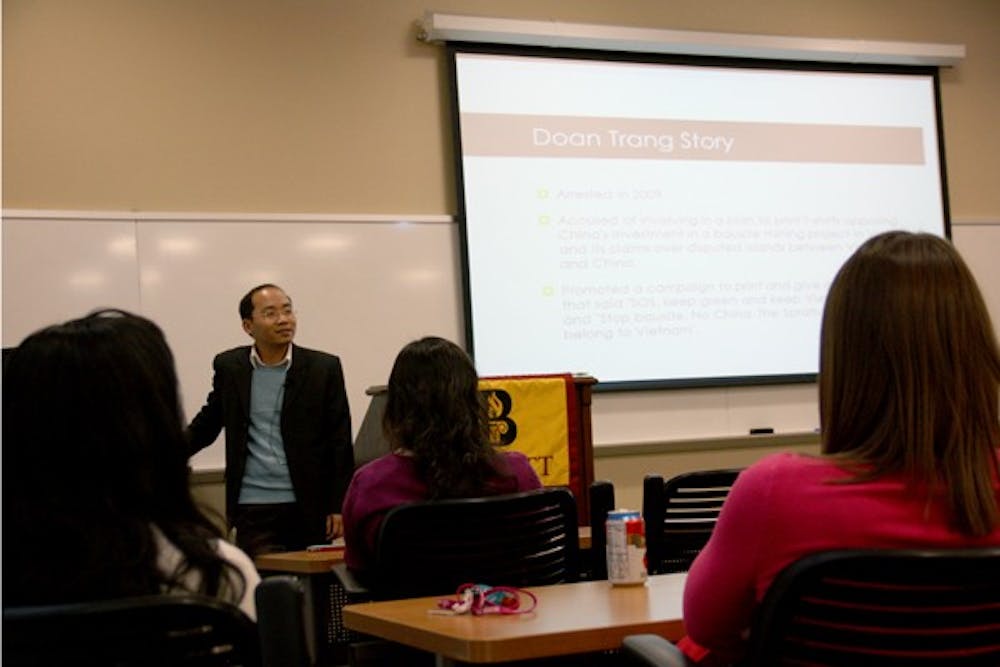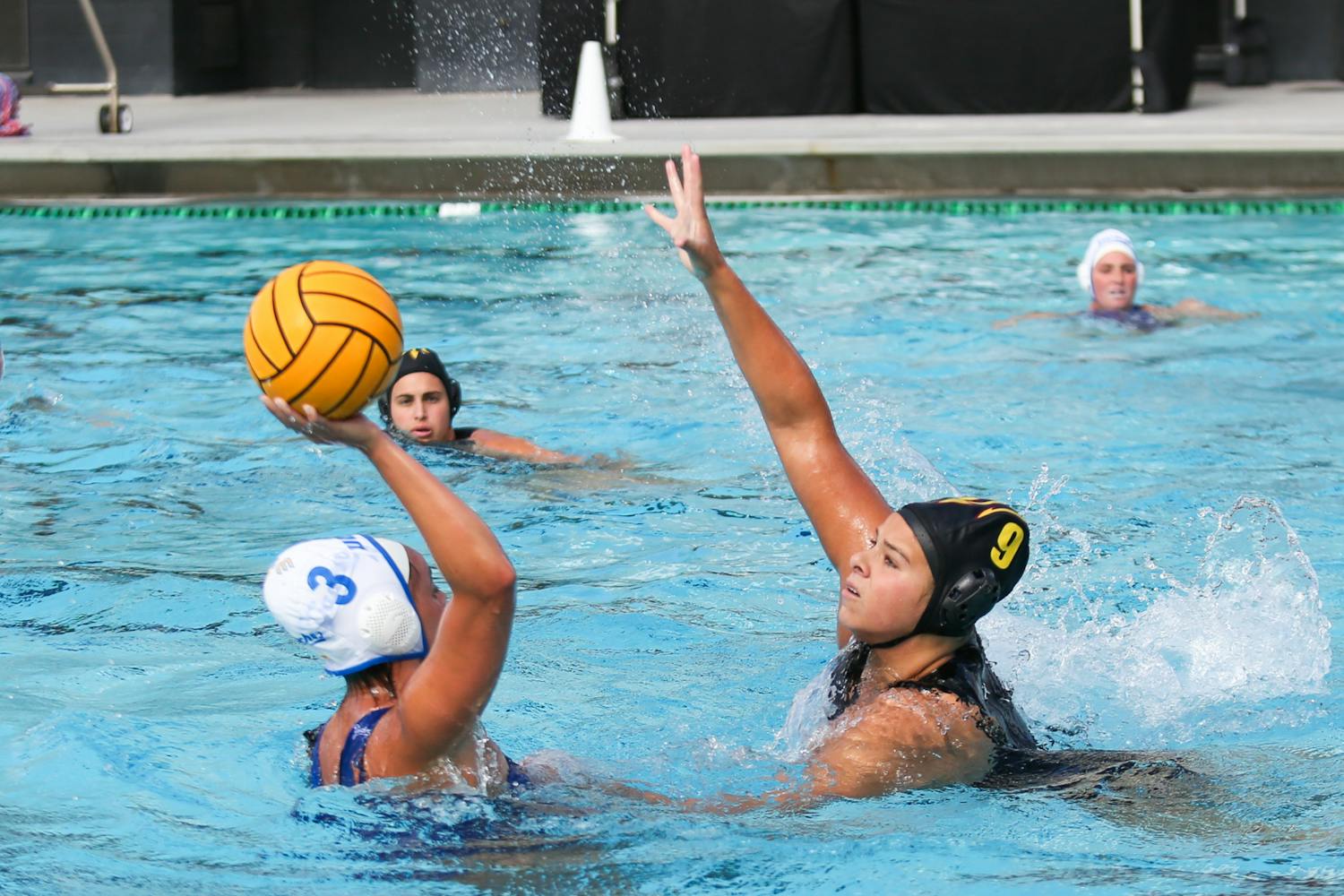 Duy Le Kanh, Vietnamese media expert and Fulbright Scholar at Point Park University, lectured Thursday afternoon about the implications of media censorship. Barrett, the Honors College, hosted the event at the Cottonwood building and was free for ASU students. (Photo by Shawn Raymundo)
Duy Le Kanh, Vietnamese media expert and Fulbright Scholar at Point Park University, lectured Thursday afternoon about the implications of media censorship. Barrett, the Honors College, hosted the event at the Cottonwood building and was free for ASU students. (Photo by Shawn Raymundo)The opening slide to Vietnamese journalist Duy Le Kanh's presentation showed a woman's lips pierced with a lock and the word "censorship" printed below.
Le, a Fulbright scholar at Point Park University in Pittsburgh, began his journalism career at a university paper in Vietnam.
“I come from a different system,” Le said.
He demonstrated this by showing two similar censorship cases: the 2008 Arizona case Frazier v. Boomsma and the story of his friend Doan Trang, which both dealt with sensitive material printed on T-shirts.
Dan Frazier’s rights were upheld by the court, but Trang was arrested for suspected involvement with printing material opposed to Chinese involvement, Le said.
Le said the police only found an “I Love China” T-shirt he gave her when they searched her house.
The cases are not always directly harmful to the government, Le said. Often, citizens are silenced for other reasons, such as revenge, rewards or political conflicts, he said.
“So censorship, but not censorship,” Le said.
One example he gave was the trial of Phuong Uyen. Arrested in Ho Chi Minh City, her trial was held in Long An, which is the president’s homeland, by the prime minister as a show of power.
Barrett, the Honors College faculty member David Pickus is Le’s close friend and invited him to speak.
The two met when Pickus visited Vietnam for the first time in winter 2009. Knowing no one, Pickus asked a friend for recommendations of people to meet. Le picked him up on a motorcycle, Pickus said, and the two became friends.
Pickus has returned to Vietnam six times since and called it a beautiful country.
Once poor and devastated by wars, within the last 20 years, Vietnam rapidly developed, Pickus said.
He said his hope is to not only interest the students in Vietnam, but for them to walk away with an understanding of globalization’s significance in everyone’s lives.
“I believe the United States won’t be able to succeed unless other globalizing countries develop successfully,” Pickus said.
Pickus defined censorship as when two parties know the truth and one prevents the other from telling. All countries have institutions that depend on not telling the truth, Pickus said.
He said the censorship in Vietnam is “part of a broader human story.”
The story of censorship is not limited to Vietnam. Exploratory social and behavioral sciences junior Xinyue Mao was born and raised in China.
Mao lived in China for 17 years before she moved to America three years ago.
Mao said online police monitor all the country’s IP addresses for government-sensitive words and videos.
“We cannot log on to Facebook, and there is no YouTube,” she said.
Both websites are blocked, because they provide too much information and a connection to the world, Mao said.
Mao sees the relevancy of China’s censorship in its high-speed growth as a sustainable country with an international focus.
“As a college student, I think you need be concerned about international things, not just national,” Mao said.
She adds that students need to “explore more than just from the lectures.”
Reach the reporter at smande17@asu.edu or follow her on Twitter @SarahDeAnderson




